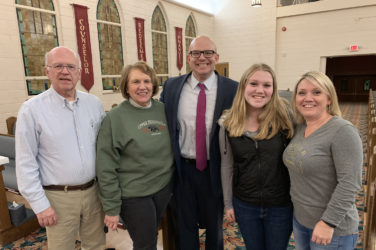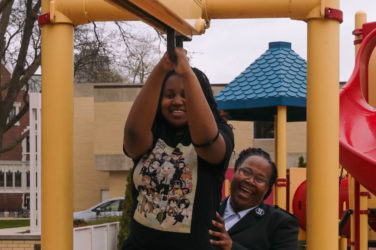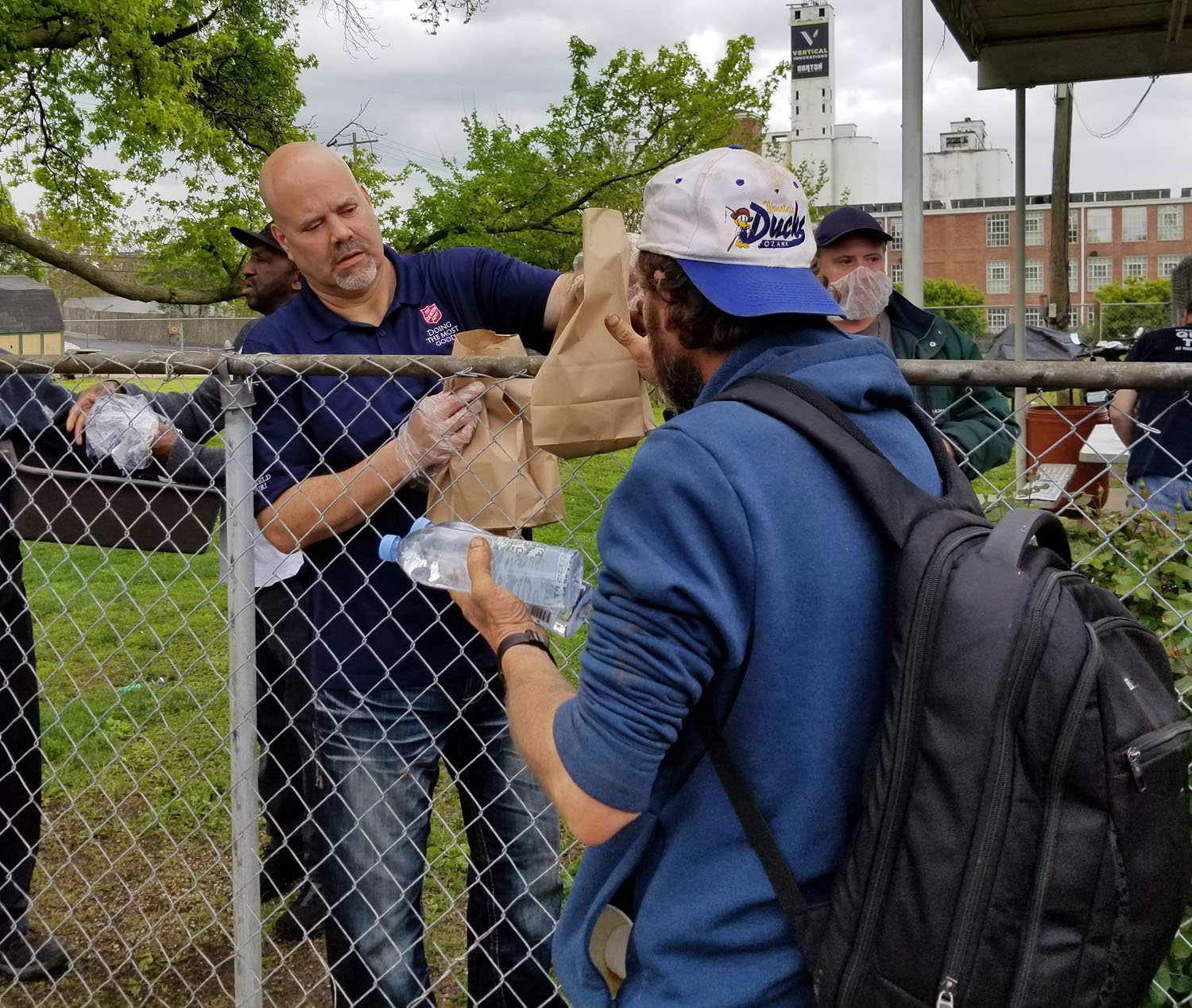 Despite the ongoing challenges presented by the coronavirus pandemic, Salvation Army ministries in Springfield, Mo., are remarkably healthy. From their two homeless shelters and noonday feeding program to corps programs and social services, Major Jon Augenstein, corps officer, reports excellent staff, hard work and a willingness to be flexible and adaptable ensures the mission continues to move forward and meet critical needs.
Despite the ongoing challenges presented by the coronavirus pandemic, Salvation Army ministries in Springfield, Mo., are remarkably healthy. From their two homeless shelters and noonday feeding program to corps programs and social services, Major Jon Augenstein, corps officer, reports excellent staff, hard work and a willingness to be flexible and adaptable ensures the mission continues to move forward and meet critical needs.
“The dedication and passion of the staff is really why the Army here has been able to flourish in this pandemic,” he said. “It’s a well-running Army that understands and is living the mission. It’s truly a blessing.”
Maintaining a full range of services requires ongoing adjustments, but the staff remains passionate and committed to their purpose of being a beacon of hope for those they serve.
“What’s really motivated me is knowing the difference it makes to have someone reach out and say we’re here for you, we care about you,” said Jamie Millikin, case manager at the Harbor House men’s shelter. “It brings hope to people. If we don’t care, no one else is going to care, no one is going to reach out and give them dignity and hope. We are here to be a place of safety and shelter.”
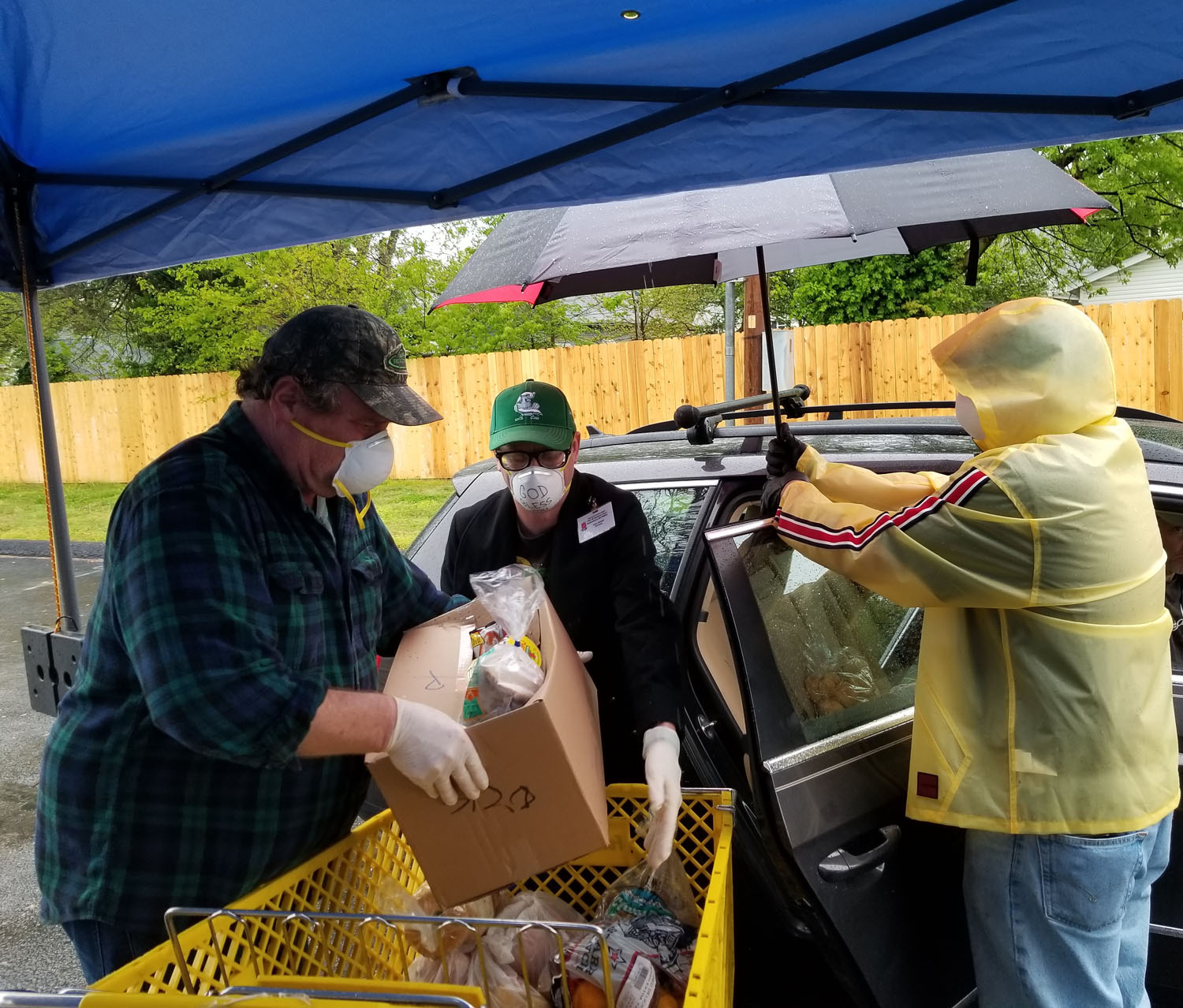 Family Haven also has continued to offer a safe place for families and individuals to stay while they work toward finding a stable income and housing. Unique to these facilities are grant-funded “respite beds” which provide homeless individuals being discharged from the hospital a safe and sanitary place to fully recover, at which point they can move forward in the program with the help of a case manager.
Family Haven also has continued to offer a safe place for families and individuals to stay while they work toward finding a stable income and housing. Unique to these facilities are grant-funded “respite beds” which provide homeless individuals being discharged from the hospital a safe and sanitary place to fully recover, at which point they can move forward in the program with the help of a case manager.
Front Line Feeding, a daily lunch program which serves meals to the Harbor House residents and other homeless in the area, now distributes boxed meals outside the facility since they can no longer safely accommodate everyone in the dining room.
“If people need help, we’re going to figure out how to help them, virus or not,” said Bryon Brown, Harbor House director. “We might not be able to get people out of the weather to eat lunch, but at least we can still give them a meal and ask how they’re doing.”
Emergency social services assistance, the corps food pantry and a weekday seniors’ luncheon have carried on with the use of social distancing and masks. Corps staff have adjusted several times to meet the need in the safest and most practical ways possible.
For example, the food pantry transitioned to a drive-thru with prepacked food boxes in the initial stages of the pandemic but has returned to an indoor grocery store model, requiring health checks, masks and social distancing, to allow clients to choose food items their families will most enjoy.
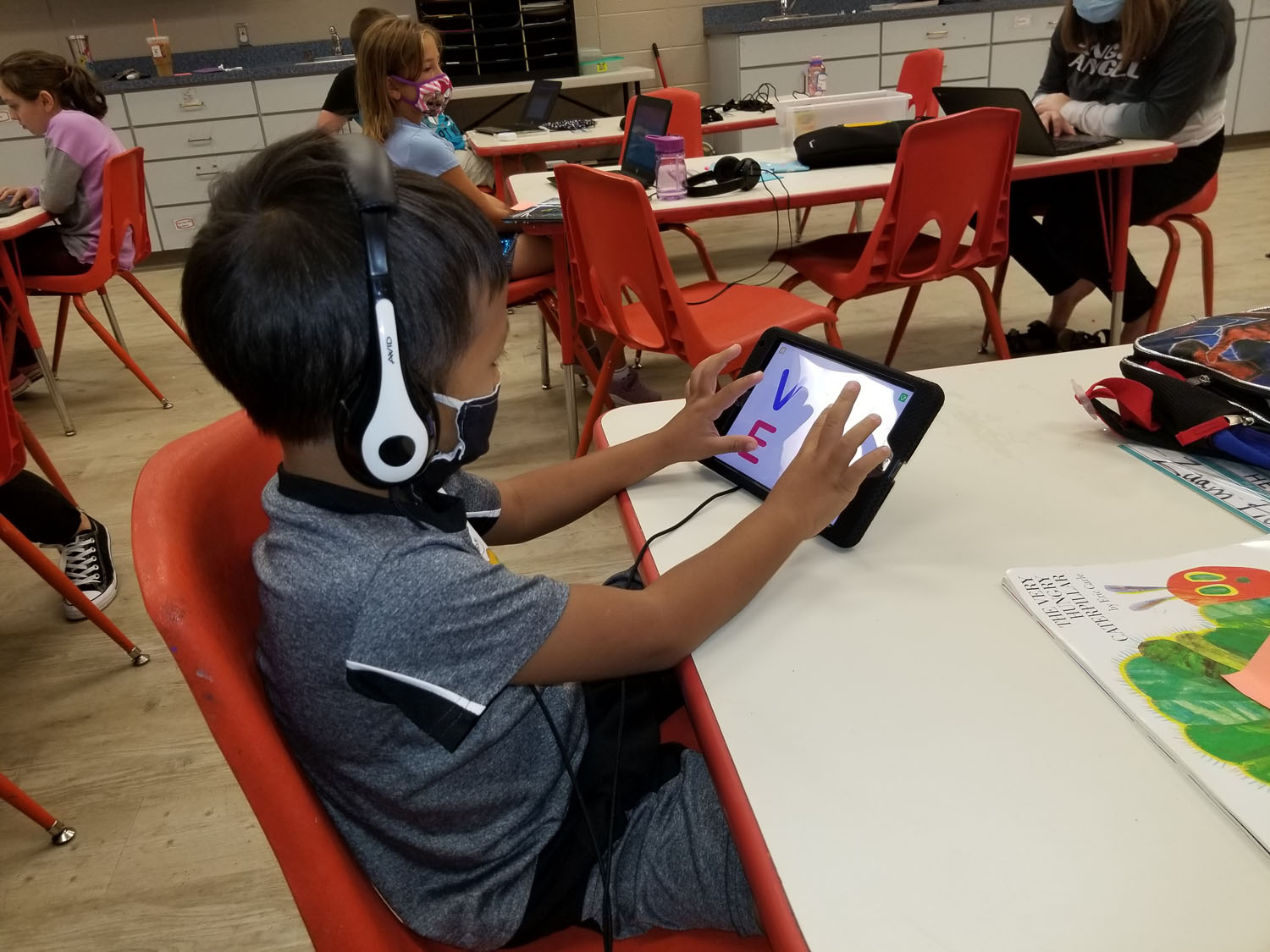 During the early days of the pandemic Springfield community leaders asked the corps to expand their afterschool program into a day camp for the children of essential workers as schools and daycare centers closed down. In response the community center staff created a full day program with time and space set aside for online learning. When schools resumed using a hybrid model in the fall, they used grant money to hire college students to provide educational support and tutoring, which has led to strong relationships with schools and teachers as children thrive despite not being physically in the classroom every day. Although the program has had a couple of short breaks in service when staff members tested positive for the virus, thanks to early and continued use of safety protocols they have not experienced any outbreaks and have been able to reopen.
During the early days of the pandemic Springfield community leaders asked the corps to expand their afterschool program into a day camp for the children of essential workers as schools and daycare centers closed down. In response the community center staff created a full day program with time and space set aside for online learning. When schools resumed using a hybrid model in the fall, they used grant money to hire college students to provide educational support and tutoring, which has led to strong relationships with schools and teachers as children thrive despite not being physically in the classroom every day. Although the program has had a couple of short breaks in service when staff members tested positive for the virus, thanks to early and continued use of safety protocols they have not experienced any outbreaks and have been able to reopen.
In addition to their ongoing services to the community, the corps has remained open for worship in person and online, with Sunday school, Bible studies and youth programs resuming last fall. Corps members happily welcome visitors from the shelters who often choose to attend when they learn of the many opportunities for worship, growth and community offered by the corps.
Major Jon concluded, “We are grateful for the incredible support of this community that allows us to run a breadth of programs.”


